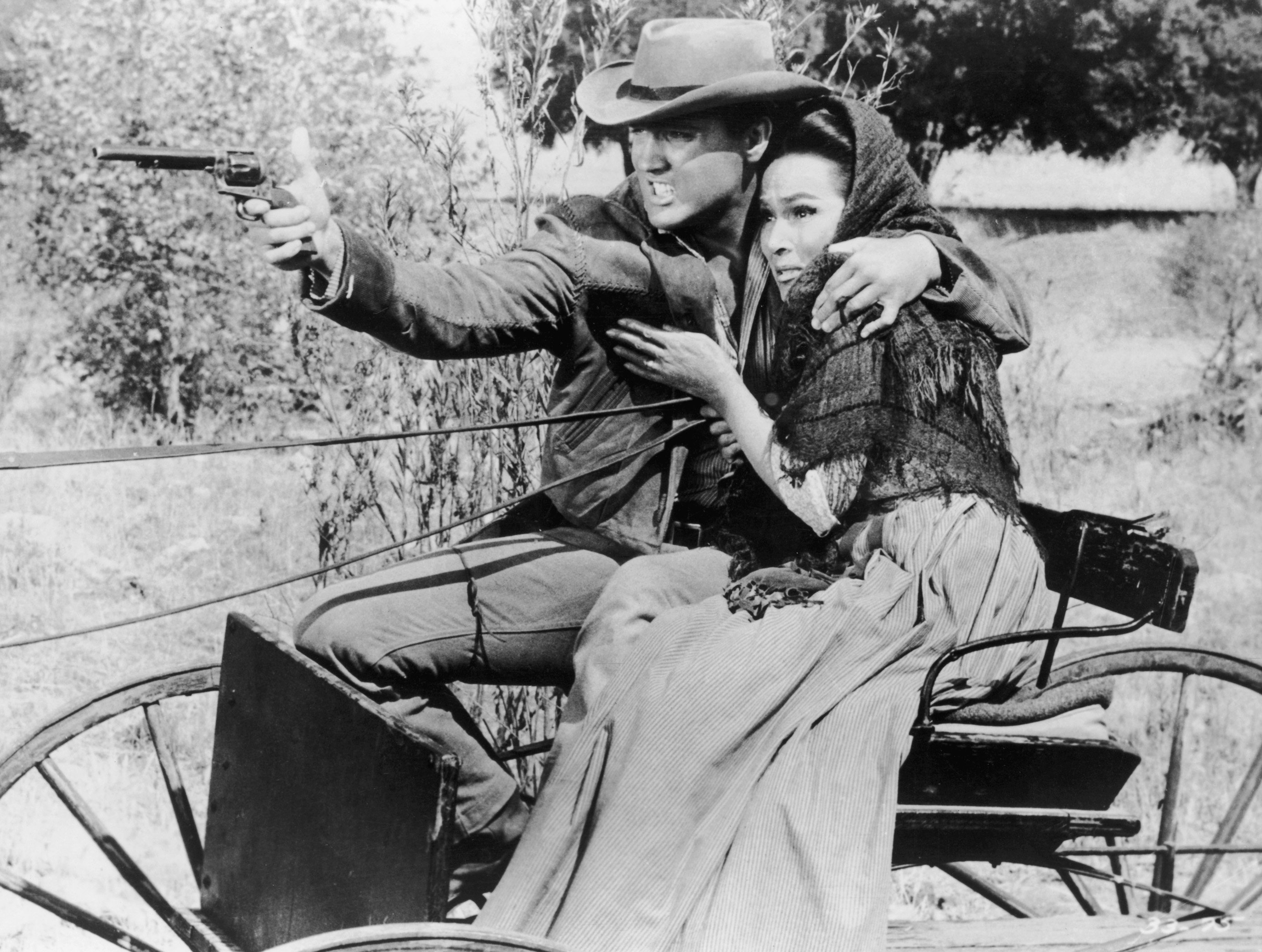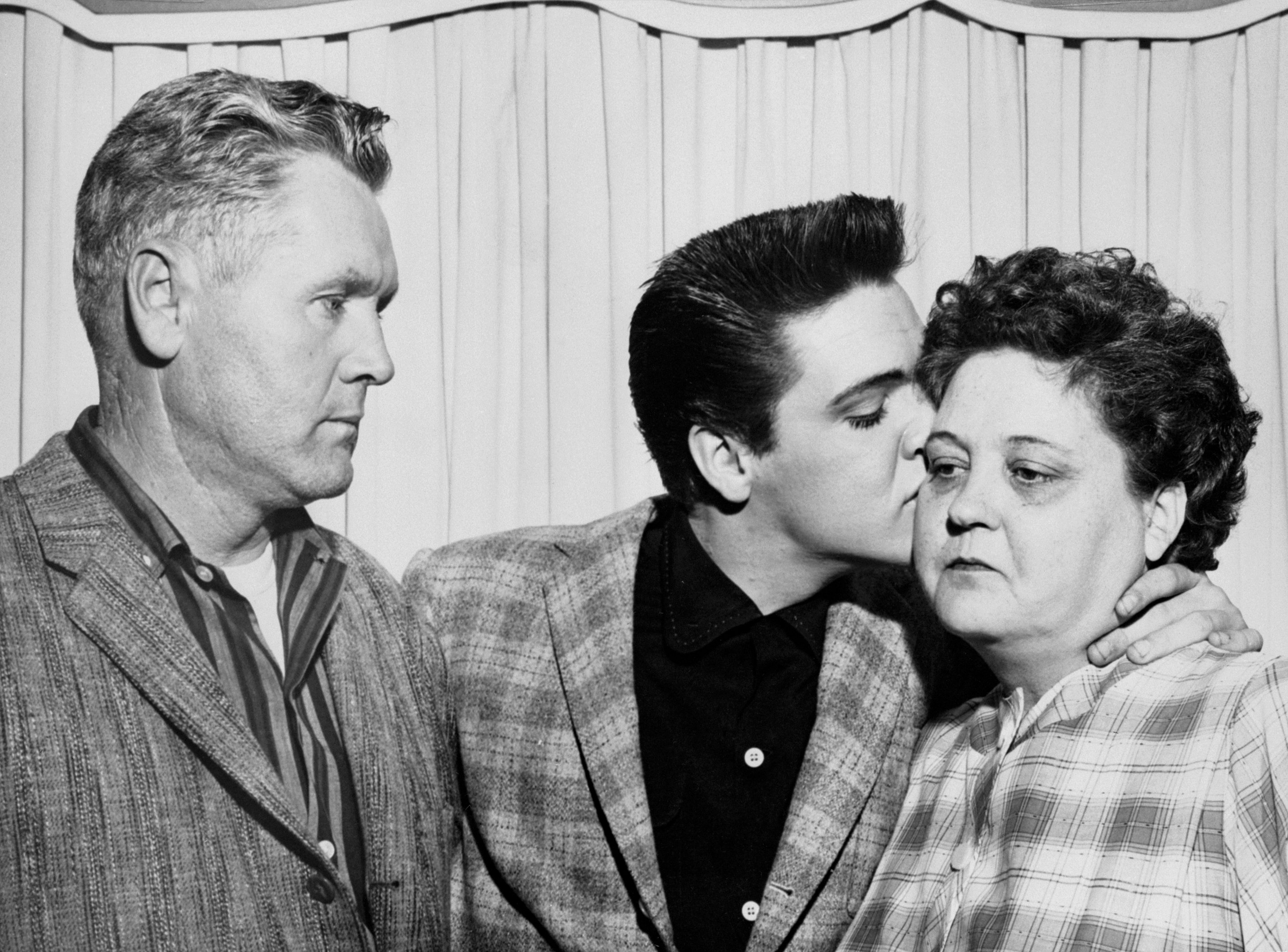Elvis Presley, the name alone evokes a sense of nostalgia and admiration for the legendary King of Rock and Roll. But have you ever wondered about his ethnic background? The man who revolutionized music and entertainment wasn’t just about the charisma and talent; his heritage played a crucial role in shaping his identity. So, let’s dive into the fascinating world of Elvis’ ethnicity and uncover the hidden stories behind his roots.
When we talk about Elvis, we’re talking about an icon who bridged cultures, brought people together, and created a sound that resonated across continents. His music was a blend of various influences, much like his own ethnic background. Understanding where he came from can give us a deeper appreciation of his artistry and the cultural impact he left on the world.
From humble beginnings in Tupelo, Mississippi, to becoming a global superstar, Elvis’ journey is as much about his music as it is about his heritage. So, if you’ve ever been curious about the man behind the music, let’s take a closer look at the diverse ethnic roots that made him who he was.
Read also:What Is King Von Kill Count Unveiling The Legacy And Impact
Who Was Elvis Presley? A Brief Biography
Before we delve into the intricacies of Elvis’ ethnicity, let’s take a moment to remind ourselves of who this legendary figure was. Elvis Aaron Presley, born on January 8, 1935, in Tupelo, Mississippi, was more than just a musician. He was a cultural phenomenon who redefined the music industry and became a symbol of the American Dream.
Elvis grew up in a modest household, raised by his parents, Vernon and Gladys Presley. Despite financial struggles, his family was deeply religious, and this upbringing significantly influenced his music. By the age of 19, Elvis had already begun making waves in the music scene, eventually becoming a household name worldwide.
His career spanned over two decades, during which he released countless hits, starred in numerous films, and became a global icon. But beyond the fame and fortune, Elvis’ ethnic background played a vital role in shaping his unique sound and style. Let’s explore this further.
Elvis Ethnicity: The Basics
So, what exactly is Elvis’ ethnic background? At its core, Elvis Presley’s ancestry is a mix of European heritage, with roots primarily tracing back to England, Scotland, and Germany. However, the story doesn’t end there. His family tree reveals a rich tapestry of cultural influences that contributed to his unique identity.
Elvis’ paternal side, the Presley family, had strong ties to England and Scotland. His great-great-grandfather, John Presley, emigrated from Ireland to the United States in the early 1800s, bringing with him the rich traditions and folk music of the British Isles. Meanwhile, his maternal side, the Smith family, boasted German and Scots-Irish ancestry, adding another layer to his diverse heritage.
This blend of European influences not only shaped Elvis’ personal identity but also informed the eclectic mix of musical styles he brought to the world. Let’s break it down further.
Read also:What Happened To King Von A Deep Dive Into The Rise And Tragic Fall
English Roots: The Backbone of Elvis’ Heritage
Elvis’ English ancestry is perhaps the most prominent aspect of his ethnic background. The Presley surname itself is of English origin, and many of his ancestors can be traced back to the rolling hills of England. This connection to England is significant because it ties Elvis to the rich musical traditions of the British Isles, including folk, blues, and ballads.
Interestingly, Elvis’ English roots also influenced his vocal style. The melodic quality of traditional English music can be heard in many of his early recordings, creating a sound that was both familiar and groundbreaking at the same time.
Scottish Influence: The Celtic Connection
Besides his English heritage, Elvis also had deep Scottish roots. The Scots-Irish influence in his family history added a unique flair to his music and personality. Celtic music, with its haunting melodies and storytelling traditions, played a significant role in shaping Elvis’ artistic expression.
Many of Elvis’ fans have noted the emotional depth in his performances, which can be attributed to the Celtic penchant for conveying deep emotions through music. This connection to his Scottish ancestry gave Elvis a distinct edge in connecting with his audience on a personal level.
German Ancestry: A Hidden Gem in Elvis’ Ethnicity
While much attention is given to Elvis’ English and Scottish roots, his German heritage often flies under the radar. The Smith side of his family, particularly his maternal grandmother, Minnie Mae Presley, had strong German ties. This German influence brought a new dimension to Elvis’ music and personality.
German music, known for its structured compositions and rich harmonies, can be seen in some of Elvis’ more polished and refined performances. His ability to seamlessly blend different musical styles may also be attributed to this German influence, which emphasized precision and versatility in artistry.
Additionally, the German work ethic, known for its dedication and perseverance, was evident in Elvis’ relentless pursuit of perfection in his music. This aspect of his personality set him apart from many of his contemporaries and contributed to his lasting legacy.
Other Ethnic Influences: A Tapestry of Diversity
Beyond his primary European roots, Elvis’ ethnicity also included traces of other cultural influences. Some genealogical research suggests that his family may have had minor connections to Native American and African-American communities, though these claims remain unverified. Nonetheless, these potential influences highlight the diversity of Elvis’ heritage and underscore his role as a cultural bridge in the music industry.
Elvis’ ability to incorporate elements from various musical traditions, such as blues, gospel, and country, can be seen as a reflection of his diverse ethnic background. His music was a melting pot of sounds and styles, much like the diverse roots from which he descended.
Elvis’ Family Tree: A Closer Look
To truly understand Elvis’ ethnicity, we need to take a closer look at his family tree. Below is a simplified breakdown of his ancestry:
| Relation | Name | Ethnic Background |
|---|---|---|
| Father | Vernon Presley | English, Scottish |
| Mother | Gladys Presley | German, Scots-Irish |
| Grandfather (Paternal) | Jesse Presley | English, Scottish |
| Grandmother (Paternal) | May Presley | English, Scottish |
| Grandfather (Maternal) | Travis Smith | German, Scots-Irish |
| Grandmother (Maternal) | Minnie Mae Smith | German, Scots-Irish |
This table provides a snapshot of the diverse ethnic influences that contributed to Elvis’ unique identity. Each branch of his family tree added something special to his heritage, shaping him into the multifaceted artist we know today.
How Did Elvis’ Ethnicity Influence His Music?
Elvis’ ethnic background played a crucial role in shaping his music. The diverse influences from his European ancestry, combined with his exposure to American blues and gospel music, created a sound that was both innovative and timeless. Let’s explore some of the ways his ethnicity influenced his artistry.
- Blues and Gospel Roots: Growing up in the South, Elvis was surrounded by the rich sounds of blues and gospel music. These genres, heavily influenced by African-American traditions, resonated deeply with him and became a cornerstone of his musical style.
- Country and Western Vibes: Elvis’ Scottish and English roots aligned perfectly with the country and western music scene, allowing him to seamlessly blend these styles into his repertoire.
- Rock and Roll Revolution: By combining elements from various musical traditions, Elvis created a new genre that would come to define a generation. His ability to fuse different influences into a cohesive sound was a testament to his diverse heritage.
Elvis’ music wasn’t just about entertainment; it was a reflection of his cultural identity. His ability to connect with people from all walks of life was a direct result of the diverse influences that shaped his artistry.
Elvis’ Impact on American Culture
Elvis’ ethnic background not only influenced his music but also played a significant role in shaping American culture. As the King of Rock and Roll, he broke down barriers and brought people together through his music. His ability to incorporate elements from various cultural traditions made him a symbol of unity and diversity.
Elvis’ impact on American culture can be seen in the way he bridged the gap between different musical genres and audiences. He introduced white audiences to the rich sounds of blues and gospel, while also bringing country and western music to a broader audience. This cross-cultural exchange was a testament to his unique ethnic background and his ability to connect with people on a universal level.
Breaking Stereotypes: Elvis as a Cultural Ambassador
Elvis’ diverse heritage allowed him to break stereotypes and challenge societal norms. At a time when racial tensions were high, he used his platform to promote unity and understanding through music. His ability to transcend cultural boundaries and appeal to people from all backgrounds was a testament to his enduring legacy.
As a cultural ambassador, Elvis paved the way for future artists to embrace their diverse backgrounds and incorporate them into their artistry. His influence can still be seen in the music industry today, where artists from all walks of life continue to push the boundaries of genre and style.
Elvis’ Legacy: A Celebration of Diversity
Elvis Presley’s legacy is a celebration of diversity and the power of music to bring people together. His ethnic background, a rich tapestry of European influences and potential connections to Native American and African-American communities, played a crucial role in shaping his identity and artistry. Through his music, Elvis transcended cultural boundaries and left an indelible mark on the world.
Today, Elvis’ music continues to inspire new generations, reminding us of the importance of embracing our diverse heritage and using it to create something truly unique. His legacy serves as a reminder that our differences can be our greatest strength and that music has the power to unite us all.
Conclusion: The King’s Cultural Crown
In conclusion, Elvis Presley’s ethnicity was a key factor in shaping his identity and artistry. His diverse heritage, a blend of English, Scottish, and German influences, combined with his exposure to American blues and gospel music, created a sound that was both innovative and timeless. Through his music, Elvis broke down barriers and brought people together, leaving a lasting legacy that continues to inspire new generations.
So, the next time you listen to one of Elvis’ iconic songs, take a moment to appreciate the rich cultural tapestry that inspired it. And if you’ve enjoyed this deep dive into Elvis’ ethnicity, why not share it with your friends or leave a comment below? Together, let’s celebrate the King of Rock and Roll and the diverse heritage that made him who he was.
Table of Contents
- Who Was Elvis Presley? A Brief Biography
- Elvis Ethnicity: The Basics
- English Roots: The Backbone of Elvis’ Heritage
- Scottish Influence: The Celtic Connection
- German Ancestry: A Hidden Gem in Elvis’ Ethnicity
- Other Ethnic Influences: A Tapestry of Diversity
- Elvis’ Family Tree: A Closer Look
- How Did Elvis’ Ethnicity Influence His Music?
- Elvis’ Impact on American Culture
- Elvis’ Legacy: A Celebration of Diversity



